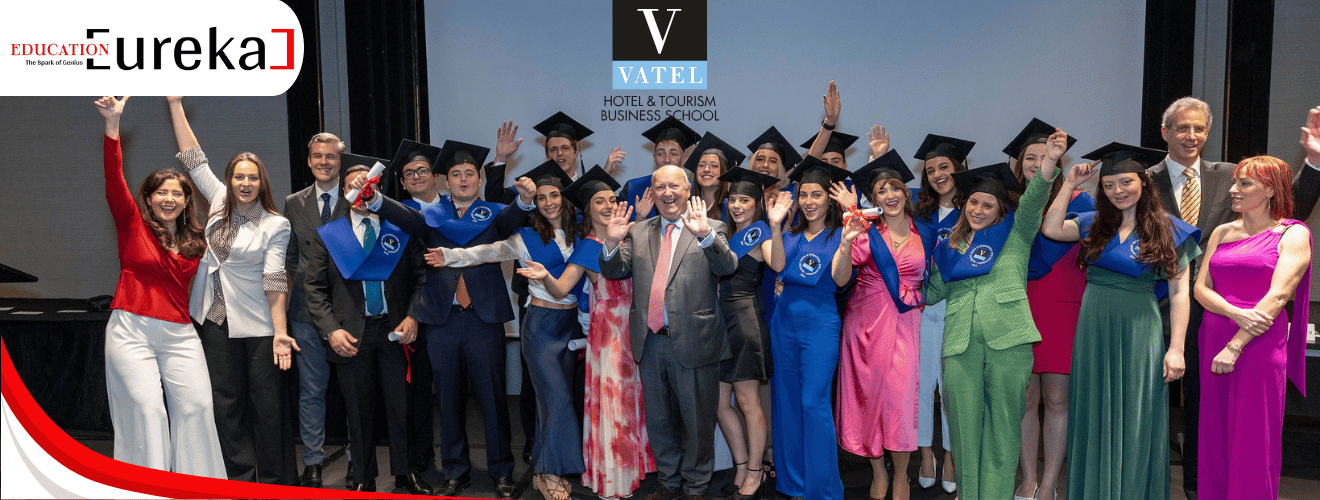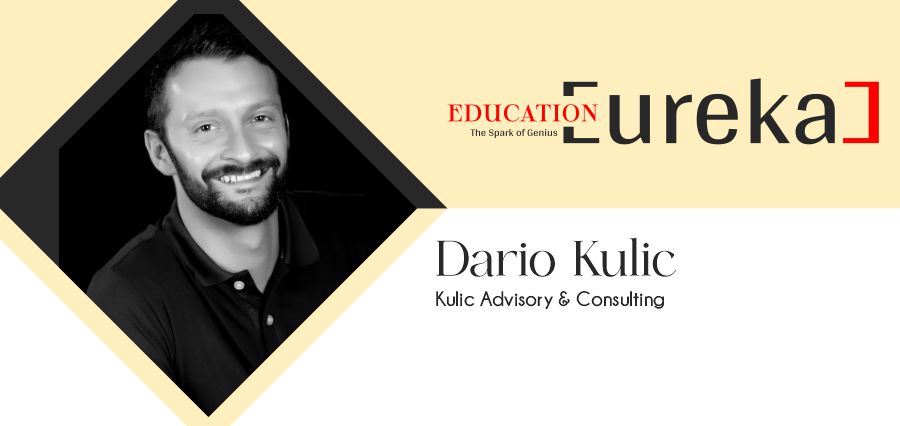
From the moment the hospitality industry demands perfection under pressure, the challenge is clear: delivering seamless guest experiences in a fast‑paced, service‑driven environment. At Vatel Madrid, International School of Tourism and Hospitality, this ambition becomes a real test of resilience and adaptability. Through its rigorous Bachelor’s Degree in International Hotel Management, students confront scenarios that mirror genuine hotel operations, balancing reception, housekeeping, food and beverage, and mid‑management responsibilities over three years, including 16 months of paid internships in three‑ to five‑star properties both in Spain and internationally.
Against this backdrop, the student emerges: a proactive individual who thrives amid high expectations. They immerse themselves in the “French art of hospitality,” a hallmark of Vatel’s philosophy, cultivating elegance, cultural awareness, and excellence in service. Fluent in English, and possibly French or German, they navigate guest interactions with confidence, turning language skills into bridges between cultures and clients.
Through collaborative projects, live hotel simulations, and real‑world internships, this candidate sharpens their operational management skills and hones leadership qualities. At Vatel Madrid, they don’t just learn hospitality, they embody it, transforming early doubts into determined action and paving the way to an international career in luxury hotel management.
In 1981, a young entrepreneur in Lyon named Alain Sebban channeled his passion for service and global opportunity into a pioneering venture: the first Vatel school in Paris. Inspired by the grandeur and grace of François Vatel, the legendary maître d’hôtel in Louis XIV’s court, Sebban envisioned something more ambitious than traditional hospitality training. He imagined a school that would weave real-world immersion into education, where teaching and operating a restaurant or hotel would go hand-in-hand.
This bold idea wasn’t born overnight. Sebban recognized that the hospitality industry was transforming in the early ’80s, with globalization forging new standards and demanding fresh managerial talent. Simple classroom instruction couldn’t keep pace. So he laid the groundwork for a radical approach: month-long cycles alternating between theory and hands-on experience, anchored by on‑campus facilities open to real guests .
Back then, nurturing both mind and skill meant cultivating elegance, discipline, and cultural sensitivity. Students donned the now-iconic Vatel uniform, sharp, composed, respectful, to internalize the values that Sebban consideredessential: courtesy, reliability, and a readiness to serve. Those early cohorts in Paris and later Lyon absorbed not just hospitality techniques, but an ethos—a calling. Their transformation from curious learners to confident professionals illustrated Sebban’s belief that immersion was education, and that life skills were the true lesson behind every plated meal and polished hotel lobby. Sebban’s vision wasn’t merely about schooling, it was about shaping human beings at the cusp of cultural exchange. In the opulent atmosphere of Parisian dining rooms, his students first felt the thrill of serving guests from across the globe. They learned to read a guest’s unspoken needs, anticipate a table’s rhythm, and manage teams with empathy and poise. These foundational lessons formed the seed that would grow into a global network.
With Paris leading the way, Sebban quickly set his sights on a second location—Lyon in 1984, choosing the city both as a strategic hub and eventual headquarters . It would be the nerve center of his growing franchise of hospitality schools. From these roots, he began sowing seeds across France: Nîmes (1989), Bordeaux (1994), and Nantes (2018). But his ambition transcended borders.
By the early twenty‑first century, Sebban had unleashed Vatel’s novel dual‑track model across continents. More than 50 campuses emerged, in Europe, Asia, Africa, and the Americas, each echoing that foundational cycle of classroom and real‑life practice. The Barcelona‑Madrid axis marked a key moment, anchoring Vatel in Spain’s cultural crossroads.
At Vatel Madrid, launched at Calle Profesor Waksman 14, the local recipe mixed the same rigor with fresh flair. Three‑year undergraduate programs, eight or more internships totaling over 16 months, and instruction in English (with B2 entry requirements for non‑native speakers) all reflected Sebban’s template. Faculty included seasoned professionals from the global hospitality circuit, like Sebastian Segui (Minor Hotels), Blanca Facundo (Manageat), and Helena Membrillera (Palladium), bringing a global mindset to local teaching.
Vatel Madrid’s focus on internships wasn’t incidental, it was central. Students rotated through 3‑ to 5‑star hotels and restaurants across Spain and beyond, applying what they learned in front‑office, housekeeping, service, and kitchen roles. It was the direct embodiment of Sebban’s mantra: “You never understand so well as when you experiment yourself,” with “50 % of teaching devoted to experimentation” at the heart of the Vatel philosophy.
In Madrid’s cosmopolitan classrooms, hundreds of students from diverse backgrounds assembled, each tied by a common story: resilience, elegance, and a thirst for a global career. Each step forward, from drafting a house‑keeping rota to organizing an international guest event, echoed Sebban’s belief that hospitality is a language in its own right.
Key to Sebban’s legacy wasn’t just campuses or curriculum, it was people. By the time Vatel boasted over 50 schools, it also boasted a network of 45,000 alumni, Vateliens, spanning the globe from Bangkok to Bogotá. This community became more than a graduated body; it was a lifelong fraternity, bound by shared uniforms, shared internships, and shared values.
Indeed, this network shaped the next generation at Vatel Madrid. Graduates, placed in hotels like Four Seasons Bangkok or Egencia Paris, returned as mentors and recruiters. Their success, like Jeremie Zeitoun’s rise to Senior Hotel Relations Manager or Udaï Singh’s directorship at Paradiso Group in New Delhi—speaks directly to Sebban’s vision.
This web of alumni offered current students valuable internships and job opportunities from day one. At Vatel, a student’s resume moved beyond paper—it carried the promise of a community ready to vouch for them. And the placement numbers were staggering: within a year of graduation, 100% find employment, 75–98% with open‑ended contracts within six months for Bachelors; 80–100% for MBAs.
Furthermore, Sebban’s insistence on level‑headed values, politeness, professionalism, self‑discipline, meant each Vatelien carried these traits into the workforce. As one alum, Christopher Kwo, reflected: “Respect. They teach us … efficient communication, dressing correctly … exemplary behavior … self‑discipline.”
At Vatel Madrid, this cultural inheritance springs to life during events like the Vatel International Business Game or the Marco Polo exchange program, where students from Madrid mix with peers in Malaga, Nimes, or internationally selected campuses. Here, Sebban’s inclusive, global vision breathes, his dream of creating a network united by values, not geography.
No educational model is without challenge, and Sebban’s creation was no exception, facing its share of questions around quality versus growth. Reddit voices, for instance, flagged inconsistencies: some campuses allegedly handed out diplomas like candy, while academic rigor varied.
However, to Sebban’s credit, Vatel’s leadership has addressed concerns head‑on. Accreditation by Eurhodip, strong corporate partnerships (such as with Accor and Fairmont), and localized quality control aim to uphold uniform standards. At Madrid, faculty with genuine hospitality leadership, John Husby at “Chuka” Restaurant; Poulat networks, ensure that theoretical lessons remain rooted in pragmatic insight.
Practice‑driven education, of course, invites variation. What one campus experiences as elevated excellence another may see as lax pedagogy. Yet Sebban’s original dual‑cycle design—with mandatory on‑job training, helps recalibrate every student’s journey toward real‑life effectiveness .
Importantly, Sebban never conceived Vatel as a rigid monolith, he saw it as a living ecosystem. Campuses refine curricula with hospitality employers, tweaking content, guest‑service teachings, dress codes, and management modules in alignment with evolving industry needs .
So while critics note occasional unevenness, Sebban’s broader impact remains: millions of hours of practical training instilled across generations; tens of thousands of alumni navigating the high-stakes world of doors, dining, conferences, and guest satisfaction. The occasional rough edges only underscore the need for continuous refinement, something Sebban always welcomed.
Today, more than four decades since that first class in Paris, Sebban’s legacy thrives in Vatel Madrid. Its three‑year Bachelor’s degree still blends 50% classroom theory and 50% practical internships, spanning housekeeping, service, kitchens, and front office across Spain and beyond. Graduates leave not just with a diploma, but with confidence in their ability to run real hospitality operations.
Madrid’s faculty, veterans from Minor Hotels, Palladium, Manageat, bring momentum and networking momentum, echoing Sebban’s original goal: to train hands-on managers with global vision. Today’s students wear the Vatel uniform not just to signify status, but to step into Sebban’s philosophy of self-respect, humility, and service.
Moreover, Madrid acts as a gateway for the now‑global Vatel spirit, attracting Spanish, European, and international students through initiatives like the Marco Polo exchange or summer hospitality courses in Malaga . From this melting pot emerge leaders ready for positions in five‑star hotels or dynamic boutique resorts, and now, empowered by Sebban’s blueprint, equipped to innovate in sustainable tourism, gastronomy, and event management.
Sebban passed leadership to the next generation—his daughter Karine is CEO, continuing his mission, while new initiatives like Vatel Gourmet Boutiques and Vatel Café reflect his appetite for fresh concepts. Meanwhile, campuses like Madrid carry forward his vision: hospitality is not a job, it’s a calling; education isn’t theory, it’s experience; a school isn’t just a building, it’s a community.
And as Madrid’s students learn to adapt, anticipate, and care for guests with elegance and empathy, they carry forward Sebban’s vision: service with soul, excellence with humility, and management with heart. In every front‑desk greeting, every banquet orchestrated under Madrid’s skyline, Alain Sebban’s enduring philosophy continues to resonate, an education built on people, purpose, and practical possibility.
In sum, Alain Sebban’s story isn’t only about founding a school, it’s about building a philosophy. Beginning in Lyon, executed in Madrid, and reflected in every confident graduate stepping off campus, his legacy remains vivid: hospitality education rooted in real experience, global perspective, and unwavering respect. At Vatel Madrid, Sebban’s spirit lives on, transforming students into leaders, one polished smile at a time.
Discover more insightful articles on education trends, exclusive interviews, in-depth magazines, and the latest educational news—explore now on the Education Eureka website.





Welcome to the future of digital storytelling, where creativity meets innovation. We’re not just a magazine platform; we’re a team of passionate visionaries committed to transforming how stories are shared, celebrated, and experienced in the digital age. Join us as we inspire, inform, and redefine the world of digital magazines.
© Copyright 2025 | educationeureka | All Rights Reserved.